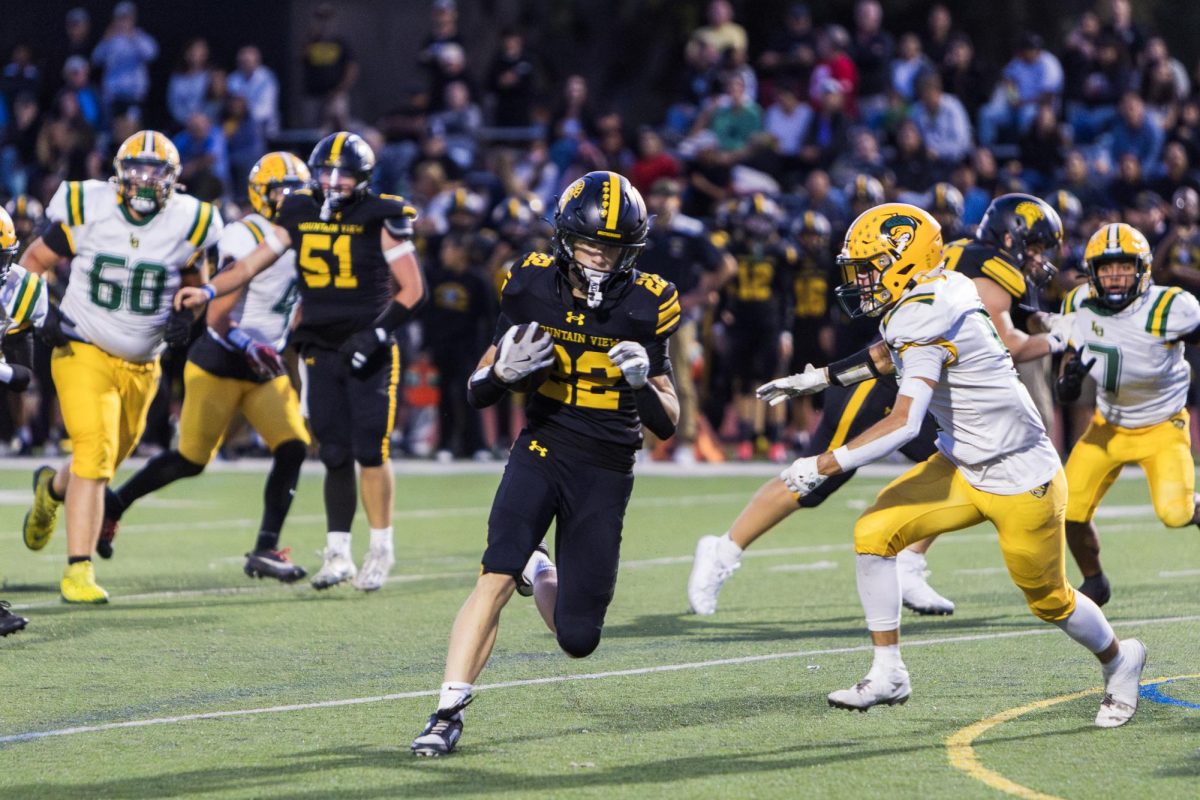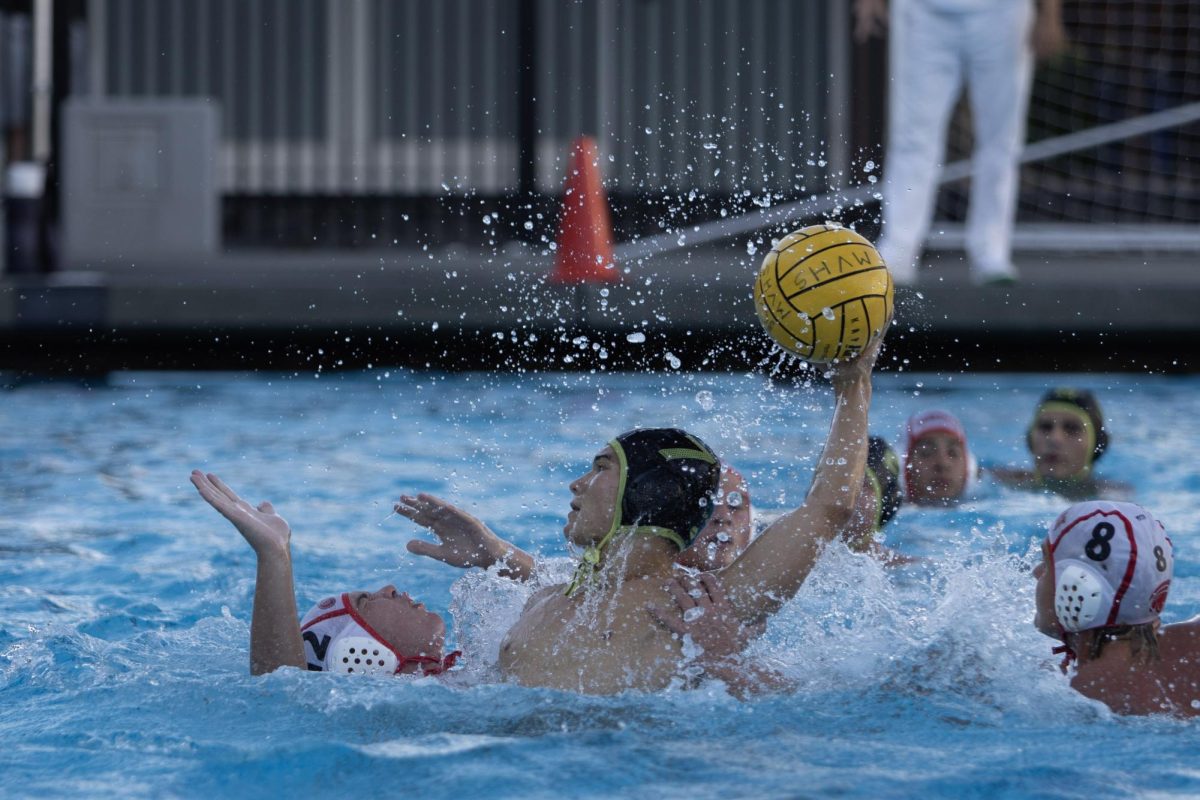Full version of perspective by Alix Rousseau (pictured above) from the Feb. 14, 2020 print edition of Oracle.
With the tensions happening between Iran, Iraq, Ukraine, Russia and the United States, we often focus more of our attention on the supreme leaders that are making the world go crazy in contrast to the lives who are being negatively affected on the frontlines. We often think to ourselves that we are powerless on these issues. That we cannot act in positive ways because after all, we are just normal civilians going about our normal lives. But we are not. And it doesn’t require a one-way plane ticket to Iraq.
For the past year, some Mountain View High School students have been supporting the humanitarian organization International Network, for Aid, Relief and Assistance (INARA) which provides medical care to refugee children whose lives have been drastically affected by the Syrian conflict. Based in Lebanon. Founded by CNN Senior International Correspondent Arwa Damon in 2015 as a result of witnessing recurring cases of children being injured as a result of war-related injuries, and domestic pediatric burns due to lack of safe home space. This club meets on a weekly basis to support humanitarian organizations in the long term. Recently, some students were given the opportunity to discuss some of these issues with actor, board member and humans rights activist Thomas Sadoski, and INARA on-ground staff member, who has chosen not be identified.
When students asked why it was important for us to spread awareness around ongoing humanitarian crises in our history classes, Sadoski told them that: “…. being informed about humanitarian crises and speaking about them is a responsibility…Not often enough do we get taught what it was like to be a day-to-day person in the midst of these events. Seek other perspectives. Be mindful that human suffering particularly the suffering of the most vulnerable like children is as important a part of the human story as gods and generals ”.
And we couldn’t agree more. As members of the international community, we must not forget why international war- conflicts and ongoing humanitarian crises are connected with modern Silicon Valley civilian life. Whether that is from the retail stores we buy from to the highly proclaimed tech companies that decide to invest in the foreign and domestic arms lobby. By educating ourselves on these conflicts we are taking a step forward to learn more about how we can support humanitarian organizations who are working tirelessly on the frontlines.
Additionally, not only should we be asking our teachers about these currents events, but also which organizations we should support. And how we mutually and financially support these organizations makes a drastic impact.
Let’s continue to use INARA as an example. And with that let’s focus on one child’s story, Azouz. His family arrived in Beirut, Lebanon as refugees as a result of the Syrian conflict. He was only a few months old when an electrical surge caused sparks and set his bed on fire leaving him with severe pediatric burns over his face and body. After hearing this story, you might still be asking yourself; what can I do to help this child?
According to numerous studies that have been produced by professionals working in war zones a simple five to ten dollar donation over a period of one to two years goes a long way. Furthermore, according to INARA staff member, we need to donate as little of a five to ten dollar donation to make a difference. This means that five dollar donation over one year could cover the cost of an x-ray. A five dollar donation over two years could cover the transportation of a child to go to and from their physiotherapy sessions. A ten-dollar donation over two years would almost cover one child’s recovery time in a hospital bed, post-surgery, for half a day.
To us, this might not seem like a lot of money and a lot of impact in the long run, but it does. And in ways, we would least expect.By donating a minimum of five to ten dollar donations each month not only helps the child, but it helps humanitarian aid organizations set up a clear budget. Not only that, if at least one-hundred people or more donate in monthly donations it can help more than one child at a time. Meaning, not only would be helping more than one child in the long term but also medium-sized organizations like INARA have a better shot at knowing where they should be placing their money. And as a result, fewer individuals are taking out big money out of there pockets. Therefore, making it an overall positive impact for both the children and the organizations. How cool is that?!
So now it’s all up to us. It’s up to us to decide if we should complain about international conflicts, and not seek out change. It’s up to us to decide if we want to keep fueling conflict or not. It’s up to us to decide how we are going to help others who are suffering from the frontlines. How are we going to go about this global issue? Is it by paying more attention in our social studies lessons? Being mindful that we are connected to humanitarian crises? Supporting humanitarian organizations in the long term? Attending clubs who educate themselves on these conflicts and who mutually & financially support vital and credible humanitarian organizations? The possibilities are endless. Change is coming whether we are aware of it or not.




































Raphaël • Feb 14, 2020 at 12:11 pm
Way to go, Alix, so proud of your leadership and what your club members have done to raise not only dollars but also awareness to this tragedy. Keep going, regardless of the hurdles put in front of you, because it is just and right. You are not the future citizens of the world. You are its present thinkers and doers!
Way to go Alix and team!
(btw, there seem to be a little glitch as the author described here is not you 😉 )